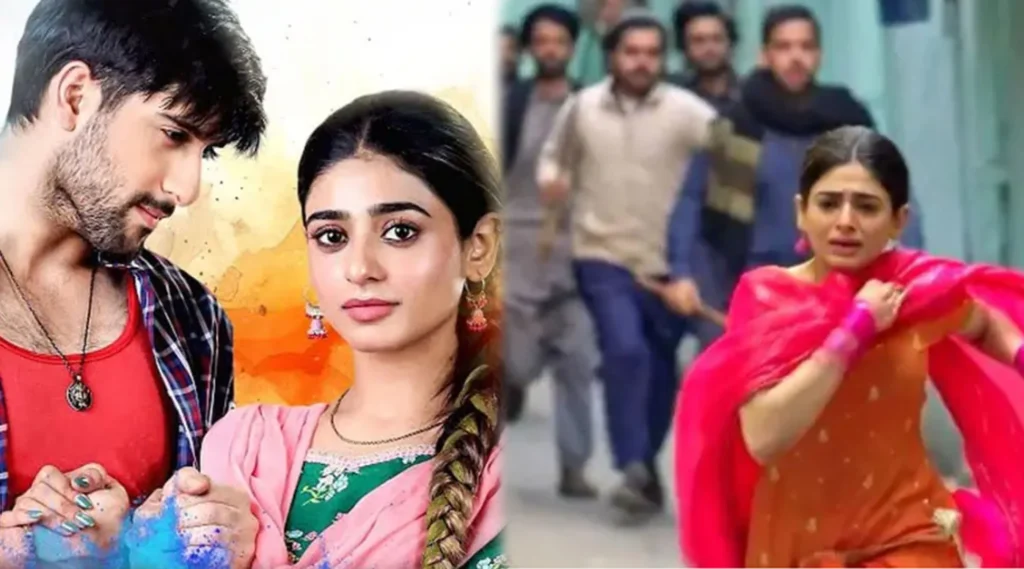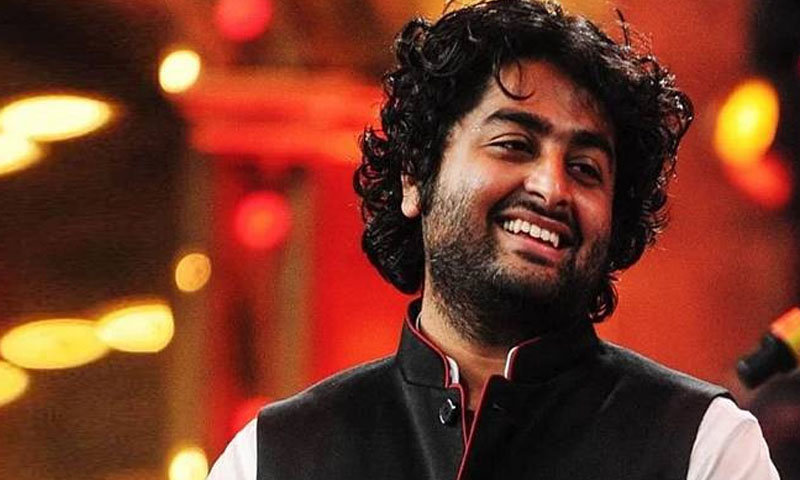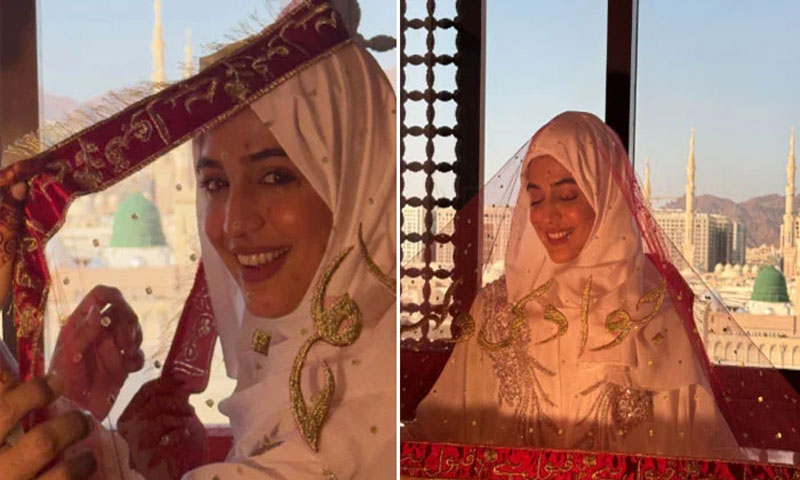- Web
- Feb 12, 2026
Sultana Siddiqui’s mini-series holds up a mirror to our world in ‘Tan Man Neel O Neel’
-

- Shazia Anwar
- Feb 24, 2025

KARACHI: A few months ago, I had a conversation with Sultana Siddiqui regarding a press release. After reviewing the entire document, she remarked, “The first drama, ‘Mann Jogi’, does indeed tackle the topic of Halala, but its main focus is not solely on this issue. Similarly, while ‘Nadan’ addresses drug use, its true aim is to explore the concept of mob mentality and how individuals can be manipulated by the crowd for their own agendas. The third drama, although it takes a lighter approach, centering on TikTok, still conveys an important message – that people should remain vigilant and not fall prey to manipulation. If we allow ourselves to be swayed, the oppressed will continue to suffer at the hands of the oppressors, and homes will continue to be torn apart.”
After experiencing the entire mini-series, a press release was crafted to highlight its impact. Sultana Apa took the opportunity to engage with the audience, to answer every question with grace and clarity as her intention in creating this mini-series transcended mere entertainment; for her it was about delivering a powerful message to the public and through “Tan Man Neel O Neel,” she successfully shared her vision with the world.
As the drama approached its conclusion, a gripping twist unfolded just ten minutes before the end. What had begun as a slow exploration of love transformed into a harrowing chase, with characters Sonu, Rabi, and Moon desperately running for their lives through the narrow alleyways, fear etched into their expressions. Even without the visual reminders of Mashal Khan from Mardan, Muneeb and Mugees from Sialkot, or the Sri Lankan citizen Preetha Kumara, the weight of those real-life tragedies lingered in our minds, underscoring the urgency of the message conveyed.
Witnessing this powerful scene, tears welled up in the eyes of everyone present. Crafting a narrative that conveyed such profound helplessness in a way that would resonate deeply with viewers was no easy task. Challenges arose at every turn, but Sultana Siddiqui has always embraced difficulties with unwavering courage.
Before the climactic final episode of the light-hearted drama, an ominous line hung in the air: “How will the old house of the Sikhs become a sacred place?” Soon enough, the truth will emerge—but by then, the crowd will have already carried out their actions. Though delivered in a light-hearted context, this dialogue foreshadowed a darker turn of events.
Watch, share, and reflect: Sultana Siddiqui on message behind viral TMNN
The last scene unfolds a grim reality of society. A shocking twist occurs when a mob, spurred by baseless accusations of blasphemy, descends into chaos. Before the main characters can defend themselves or prove their innocence, they find themselves pursued by an enraged mob wielding sticks and axes. All the while, the city’s inhabitants stand by as mere spectators, bearing witness to the unfolding tragedy that claims innocent lives.
In the latest episode, viewers were left stunned by an unexpected conclusion that captured widespread attention, igniting a flurry of discussion on social media that resonated for days. To my knowledge, every platform has engaged in this dialogue, exploring the profound message conveyed by Sultana Siddiqui: Think for yourself and don’t let others’ agendas sway your judgment. The fire of misplaced ambitions can consume not only others but also one’s own home.
‘Tan Man Neel O Neel’ masterfully explores critical themes such as the sexual harassment of men, male ego, the violent repercussions of rejection, mob violence, hollow marriages arranged by families, and the manipulation of lives for political gain. Mustafa Afridi’s storytelling intricately weaves these themes into a narrative that holds a mirror to uncomfortable realities we often prefer to ignore—like the silence surrounding abuse, the courage to protest, and the dangerous potential for a peaceful demonstration to spiral into chaos and tragedy.
The brilliance of Mustafa Afridi’s pen lies in his ability to elevate these societal issues onto the screen, giving each character a depth that resonates with viewers. Saif Hassan’s direction further amplifies this impact, transforming the story into a nuanced portrayal of human experience. The challenges and realities presented across these three mini-series are akin to attempting to contain a turbulent river in a jar—an impressive feat that is emblematic of Sultana Siddiqui’s visionary storytelling.
Such artistry is rare, and it is a testament to Sultana Siddiqui’s unique ability to highlight not only individual struggles but also broader societal concerns. May we be blessed with more storytellers who prioritise universal truths and the well-being of humanity over individual interests.




